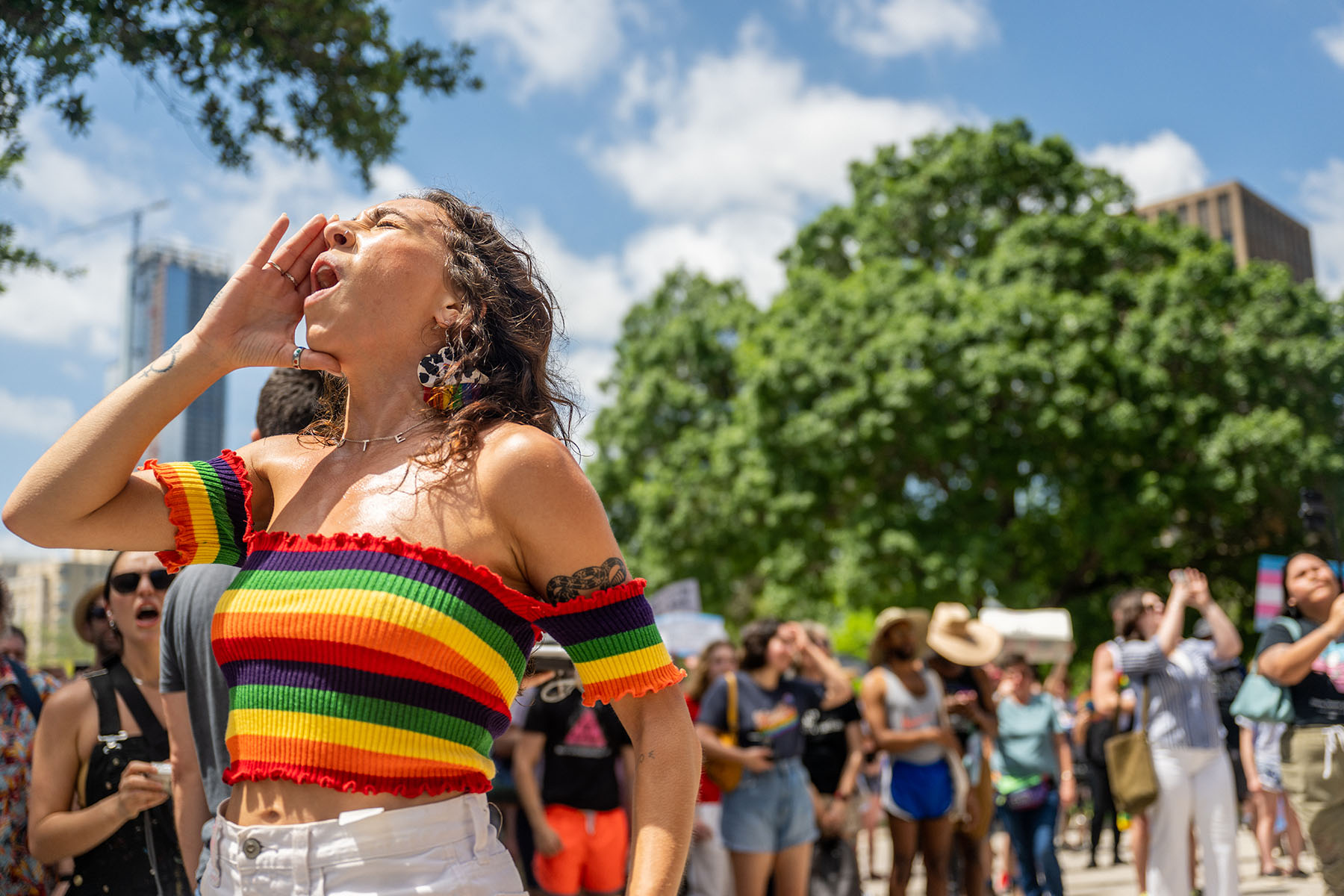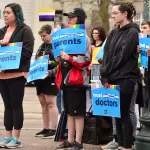More than 75 anti-LGBTQ+ bills have been signed into law this year, but they are increasingly unable to hold up in court. In just the last two months, federal judges — including two appointed by former President Donald Trump — and one county circuit judge have blocked seven bans on gender-affirming care for transgender youth, and three bans on public drag performances.
Repeatedly, judges have found in preliminary injunctions that gender-affirming care bans are likely unconstitutional and that the families of transgender youth have a strong likelihood of winning their cases. Multiple judges, including in Tennessee and Florida, have pointed out that states have largely failed to call upon experts with actual experience in treating patients with gender dysphoria.
On Wednesday, federal judges in Kentucky and Tennessee granted statewide preliminary injunctions to temporarily halt their states from enforcing bans on gender-affirming care for trans youth. In Tennessee, U.S. District Judge Eli Richardson, a Trump appointee, allowed trans youth to access puberty blockers and hormone treatments, but blocked surgeries for minors, which are exceedingly rare.
Richardson’s decision is part of a rising tide of court victories for transgender rights, said Joshua Block, senior staff attorney for the ACLU’s LGBTQ & HIV Project, in a statement.
“Across the country, we’re seeing a clear and unanimous rejection of these laws as unconstitutional, openly discriminatory and a danger to the very youth they claim to protect,” he said. It is yet to be seen how lawsuits in states including Georgia, Texas, Idaho and Montana will play out, but so far, gender-affirming care bans for youth have failed to survive in federal courts, once challenged.
The challenges to gender-affirming care bans have been filed based on the Equal Protection and Due Process Clauses of the 14th Amendment, and federal judges have repeatedly found that bans on gender-affirming care for trans youth are likely unconstitutional on those grounds.
-
More from The 19th
- We spoke with six trans people across three generations about strength, solace and self-discovery
- Gender-affirming care in Florida just got even more difficult for trans adults to access
- A relocated show and an overturned law reveal the ways restrictions on drag vary across the country
Earlier this month in Arkansas, LGBTQ+ advocates celebrated the historic result of such a legal challenge. The first full trial for a gender-affirming care ban ended with a federal judge striking down a state law that would have kept doctors from providing gender-affirming care to trans youth or referring them to any other health care worker.
In Indiana, a federal judge appointed by Trump granted a temporary injunction on June 16 that blocked the state’s ban on gender-affirming care from taking effect on July 1. The law would have prohibited health care providers from giving patients information about gender-affirming care or making referrals to other medical providers. The judge, James Patrick Hanlon, did not block the state’s ban on surgeries for minors.
Transgender adults and minors in Missouri faced nearly impossible barriers to access gender-affirming care following an emergency order from the state attorney general — until a Missouri county circuit judge blocked it from taking effect through a temporary restraining order in May. Attorney General Andrew Bailey later terminated his emergency order, which had been challenged by LGBTQ+ legal group Lambda Legal and the ACLU of Missouri.
In Oklahoma, the state attorney general’s office reached a binding agreement on May 18 with the ACLU and Lambda Legal, stating that it would not enforce the state’s gender-affirming care ban for trans youth while civil rights groups push for a preliminary injunction. The health care ban had taken effect immediately upon being signed on May 1.
In Florida, two anti-LGBTQ+ laws — a ban on Medicaid coverage for gender-affirming care, which would impact adults, and a law restricting public drag performances — were temporarily blocked from being enforced across the state this month. A third Florida law banning gender-affirming care for minors was blocked in a limited scope — meaning that the state is only explicitly barred from enforcing the ban against the three trans youth plaintiffs in the case. However, advocates argue that the judge’s order applies to trans youth across Florida, and that his later argument in his Medicaid decision supports this.
U.S. District Judge Robert Hinkle heard two of the three Florida cases: the one on gender-affirming care for trans youth and on Medicaid coverage for gender-affirming care for people of all ages. In his injunction blocking the state from enforcing its ban on gender-affirming care for trans youth, Hinkle wrote that there “is no rational basis” for a state to categorically ban hormone treatment or puberty blockers for minors and disparaged the state for an “unspoken suggestion” running below the surface in its adoption of the rules — that transgender identity is not real.
Lawyers for the state are appealing both of Hinkle’s decisions to the 11th Circuit Court of Appeals.
The temporary block on Florida’s public drag ban, issued by U.S. District Judge Gregory Presnell, echoes similar actions taken across several states in declaring that such laws violate the First Amendment.
In Utah, a federal judge ordered the city of St. George to allow an all-ages drag show to take place in a public park, disparaging city officials for infringing on locals’ First Amendment rights. In Tennessee, a federal judge issued a final ruling this month blocking a drag ban from taking effect, after he had previously issued a preliminary injunction against the law. In Florida, Presnell noted that the law “is specifically designed to suppress the speech of drag queen performers.”







